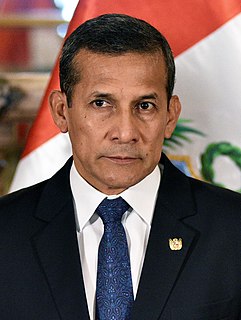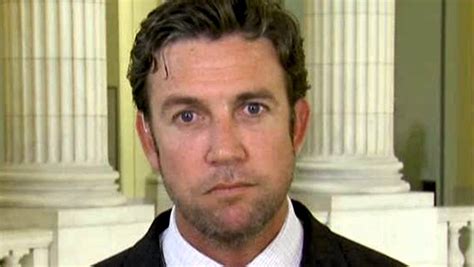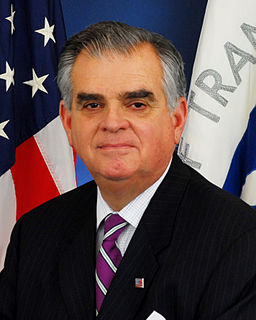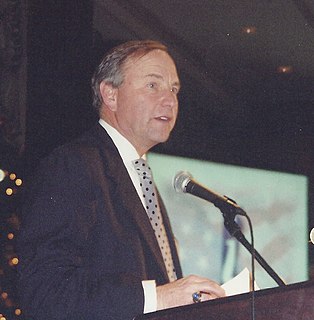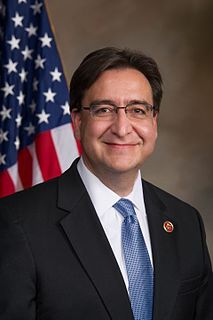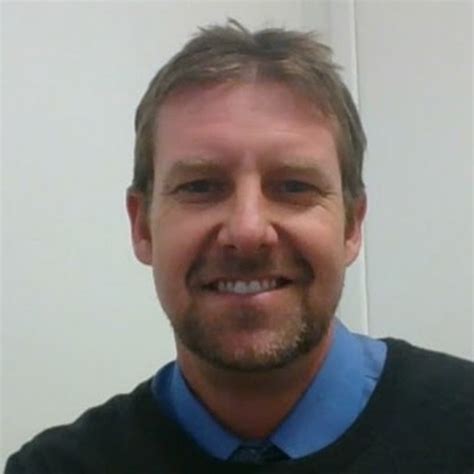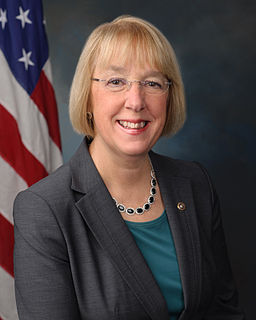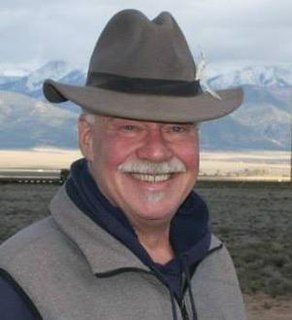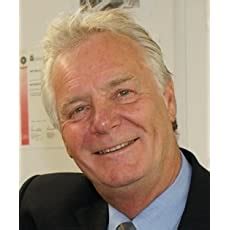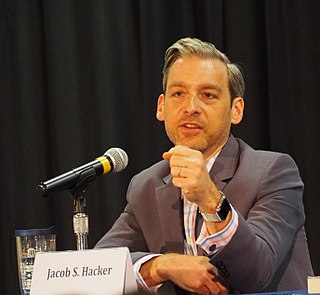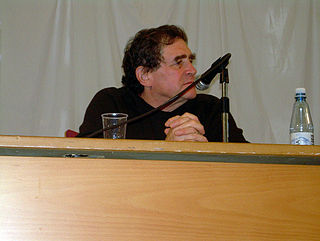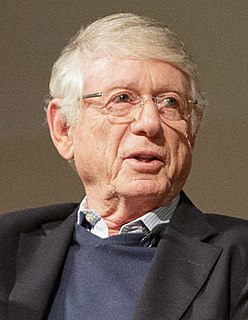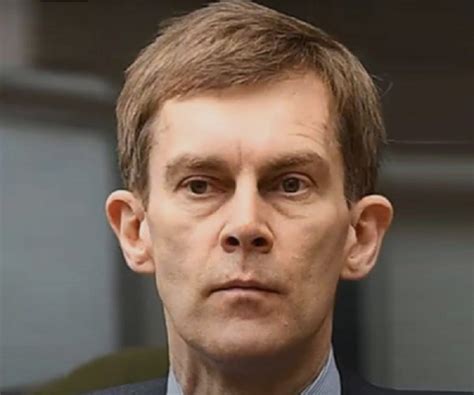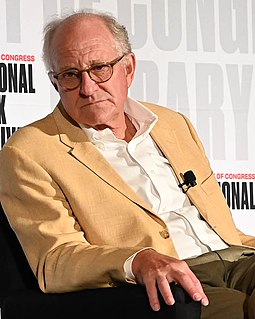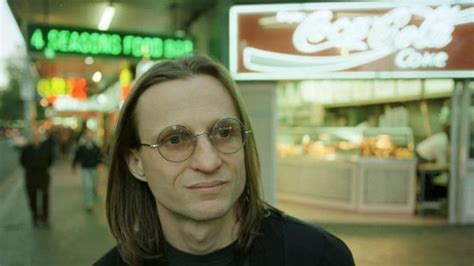Top 1200 Crumbling Infrastructure Quotes & Sayings - Page 20
Explore popular Crumbling Infrastructure quotes.
Last updated on April 17, 2025.
Letting the perfect be the enemy of the good is one of the reasons we have a coal-dependent infrastructure, with the resulting environmental impact that all of us can see. I suspect environmentalists, through their opposition of nuclear power, have caused more coal plants to be built than anybody. And those coal plants have emitted more radioactive material from the coal than any nuclear accident would have.
I think the coca grower needs an alternative to stop growing coca. We need to have a comprehensive policy, which means separating the coca-growing population from the drug-trafficking networks through more presence of the state in the fields of health, education, infrastructure. We need to fight against money-laundering and the exporting of large amounts of cocaine through our ports.
In 2006, the Secure Fence Act was signed into law, requiring the Department of Homeland Security to build upward of 700 miles of double layered fencing along the U. S-Mexico border. While the Obama administration is quick to state that the targets have been met, only a small fraction - in fact, less than 40 miles - of the newly implemented infrastructure is double-layered.
The majority of America wants action on climate change. The majority of America thinks we should regulate carbon dioxide as a pollutant. And the majority of America thinks we should prioritize solar and wind infrastructure over fossil fuels. Those are impressive majorities, ones that every office seeker and office holder should heed.
I cannot for the life of me understand why the American market keeps going up. Our economy has some real challenges. The infrastructure's falling apart. We're destroying jobs with technology. We are keeping the best and the brightest from around the world from coming to America to create new jobs and create new businesses. All of those things would give you pause to worry about the future.
The Bush administration, they had two blue ribbon commissions about infrastructure finance that recommended a lot more money, and additionally the gas tax being increased. We couldn't get them to accept being able to move forward. Since President Obama's been in office, there has been, to be charitable, a lack of enthusiasm for raising the gas tax.
That's why we call for a New Deal prototype. Which means we are creating the jobs - nationally funded program but locally controlled - with guidelines to achieve 100% clean renewable energy through wind, water and sun by 2030. Also to create a sustainable food system, since this is a major portion of climate emissions, and also calling for public transportation as well as infrastructure restoration including in that ecosystem restoration.
Our commitment should be to leave our environment in better shape than when we found it, our nation's fiscal house in better order, our public infrastructure in better repair, and our people better educated and healthier. To indulge in immediate gratification and exploitation is an insult to previous generations, who sacrificed for us, and thievery from the next generation, who depend on our virtue.
The Occupy Wall Street collective is confused about what it wants but it wants it now! Some of the loonier demands from its independent thinkers: Striking all existing public and private debt from the books across the "entire planet"; elimination of all international borders; free college education; a guaranteed "living wage" for all regardless of employment; an end to free trade; trillions in additional spending for infrastructure and ecological restoration; and ending the fossil fuel economy.
If you're worried about messaging, people will just move to something else. You know if you legislate against Facebook and Apple and Google and whatever else in the US, they'll just use something else. So are we really safer then? I would say no. I would say we're less safe, because now we've opened up all of the infrastructure for people to go wacko at.
When I talk about how we're going to pay for education, how we're going to invest in infrastructure, how we're going to get the cost of prescription drugs down, and a lot of the other issues that people talk to me about all the time, I've made it very clear we are going where the money is. We are going to ask the wealthy and corporations to pay their fair share.
Read a textbook. It will tell you. These are the things for instance on the African continent that will contribute to immune deficiency, various tropical diseases because of poor infrastructure, general levels of poverty don’t get treated. Syphilis untreated or not properly treated, which as it happens is a big problem as I hear, gets treated, the symptoms disappear but in fact… it … that impacts on the immune system. You’ve got to deal with these things.
Economics should be defined in terms of what it is about. It should be about how people produce things, how people exchange them, how people earn income, how they pay taxes, how the government provides infrastructure with tax revenue, and how it conducts monetary policy. The subject has to be defined in terms of the object of inquiry.
After using the 'good offices' of UN diplomacy (economic sanctions and weapons inspections) to ensure that Iraq was brought to its knees, its people starved, half a million of its children killed, its infrastructure severely damaged, after making sure that most of its weapons have been destroyed, in an act of cowardice that must surely be unrivalled in history, the 'Allies' / 'Coalition of the Willing' (better known as the Coalition of the Bullied and Bought) - sent in an invading army!
Countries that work with Europe should feel safer than they would if they worked with non-democratic regimes. Why isn't Europe building infrastructure in Africa instead of leaving it to the Chinese? Why haven't we succeeded in promoting the economic development of our neighbors in the Balkans, instead conceding these countries to growing Russian influence? In an uncomfortable world, we Europeans can no longer sit back and wait for the U.S.A.
We face cyber threats from state-sponsored hackers, hackers for hire, global cyber syndicates, and terrorists. They seek our state secrets, our trade secrets, our technology, and our ideas - things of incredible value to all of us. They seek to strike our critical infrastructure and to harm our economy.
In the eyes of many business leaders, there is never an opportune moment for tax reform. Yes, the economy is losing momentum, but that is not because a handful of people are losing their privileges. Slow growth did not first begin during my term in office; the market downturn is making itself felt around the world. My government has responded with an agenda aimed at raising productivity. We are also investing substantially in infrastructure - the plan calls for €20.5 billion or $26.3 billion by 2021.
In Iraq, I listened to David Petraeus speak every day about how we had to rebuild Iraq's oil infrastructure and protect it. But, if we're going to go trillions of dollars in debt over Iraq, why can't we go billions of dollars in debt and make every single coal-producing plant clean in West Virginia?
Cloud computing means you are doing your computing on somebody else's computer. Looking ahead a little, I firmly believe cloud - previously called grid computing - will become very widespread. It's much cheaper than buying your own computing infrastructure, or maybe you don't have the power to do what you want on your own computer.
The Houston Contractors Association is proud to endorse Council Member Oliver Pennington for re-election to Houston City Council. Council Member Pennington understands that infrastructure investment is crucial to protect the long-term economic vitality of our community. We strongly support his efforts on behalf of small businesses and the construction industry while demonstrating his commitment to sound management of the city's budget.
For three years now, probably more, there is a clear common interest developed between Israel and the leading Sunni moderate entities. The Emirates, Saudi Arabia, Egypt, Jordan. And the common interest is to block radical Muslim terror, to counter the Iranian hegemonic and nuclear intentions, and to join hands in a huge infrastructure project from water, energy, transportation, whatever, in the whole Middle East.
Bridges are burning all around us; bridges to responses that might have mitigated the already brutal (and just beginning) ravages of Peak Oil; bridges to reduce the likelihood of war and famine; bridges to avoid our selectively chosen suicide; bridges to change at least a part of energy infrastructure and consumption; bridges to becoming something better than we are or have been; bridges to non-violence. Those bridges are effectively gone.
I am sure it is in the medical textbooks, there are many things that cause immune deficiency and you will find therefore in the South African HIV and AIDS programme, that it will say that part of what we have got to do is to make sure that our health infrastructure, our health system is able to deal adequately with all of the illnesses that are a consequence of AIDS.
I basically love classical music. I love a lot of musicians playing together and the whole culture of that whether it's Indian or it's Western. But in India, I think it's limited to filler music unfortunately. That's one thing I want to push in India where we have the infrastructure of an orchestra where you play Indian melodies with an orchestra and something different for a universal audience. It requires a lot of work from me.
Because it is such a huge crisis, because it puts us on a firm science-based deadline, it's a once-in-a-century opportunity to build a better society and address raging inequality, create huge numbers of jobs, rebuild our public infrastructure. But, we can't do it unless we break every single rule in the free-market playbook. Which is why the worst people in the world all deny climate change.
[Donald trump] was steamed about [Hillary] Clinton's suggestion that he might not be as rich as he says. So he ditched the email stuff and instead spend a couple of minutes defending the greatness of his income, his company, his debts, his bankers, his buildings - and then sort of forgot what he was talking about and wandered off into a riff about how terrible our infrastructure is.
A permanent and sustainable solution to all the problems facing working people is possible by taking the biggest companies into democratic ownership, and reorganizing the economy on a democratically planned basis. Under such a system we could democratically decide how to allocate resources. We could rapidly transition away from fossil fuels, develop massive jobs programs to rebuild the country's rotting infrastructure, and begin to build a whole new world based on meeting the needs of the majority, not the profits of a few.
A major change is afoot as we combine both WPZ and Access into the large scale natural gas infrastructure MLP. And the team here at WPZ is very energized right now as we're on the verge of a major $1 billion boost in our annual cash flows that we expect to come from three major projects Geismar, Gulfstar and the Keathley Canyon Connector all of which have reached the commissioning stage here in the fourth quarter.
If you look at how the US economy has suffered over the last 15 or 20 years, it's in significant part because we haven't done the investments in research and development and infrastructure and other public goods that are necessary for our growth. And, unfortunately, we're going to be feeling that overhang for a long time to come, because it's the investments we made in the 1950s and '60s and '70s that result in some of the greatest technological breakthroughs that we enjoy today.
In terms of President Trump, I really do hope that he does accomplish some of the things he said on the campaign trail. If he is willing to make investments in infrastructure, but not on the backs of the middle class and the working class, and put people back to work, that would be a good thing. If he's serious about making Obamacare better, and not pulling the rug out from 20 million Americans who benefit from it, that would be a good thing too.
There's a lot of sensitivity about federal involvement in elections around the country. I think that it would be appropriate to consider - whether there should be some basic federal minimum standards to the cybersecurity around the election infrastructure. We have federal standards for aviation security, for auto safety, for a lot of things, and elections are pretty important in the country.
When you take a look at the transition from server software to Azure, what's going on in terms of cloud infrastructure, the company is absolutely the No. 1 company serving enterprise backbone needs, which is fantastic. It's making the migration to cloud. We started a good thing with Azure, and the company has made well more than two years of progress in terms of being able to compete with the right cost profile, margin structure, and innovation versus Amazon.
The whole privatisation of health and education, of natural resources and essential infrastructure - all of this is so twisted and so antithetical to anything that would place the interests of human beings or the environment at the center of what ought to be a government concern - should stop. The amassing of unfettered wealth of individuals and corporations should stop. The inheritance of rich people's wealth by their children should stop. The expropriators should have their wealth expropriated and redistributed.
I say we have not even had the decency to maintain the assets that our parents and grandparents built for us - our roads, our bridges, our wastewater systems, our sewer systems; by the way, those weren't Bolsheviks, those weren't socialists that built those things for us - much less build the infrastructure we need for the 21st century.
In contrast, the 'Old Europe' channels were showing film from reporters who had embedded themselves at the wrong end of the Baghdad blitz and the Basra bombardment. These films depicted the shattered homes, the killed and grieving civilians and the infrastructure chaos our armed forces are creating daily. Since this footage (none of it bearing the al-Jazeera logo) clearly exists, why does the Western media studiously ignore it or, when confronted by it, claim it to be Iraqi propaganda.
Listen, the environmental movement is not about protecting the fishes and the birds so much as recognizing that nature is the infrastructure of our communities ... If you're saying the values that drive the environmental movement are uncool and antithetical to America, then I would argue just the opposite. If you think being patriotic is not cool, I'd say that's not true either. I'd say the most patriotic thing you can do is to take care of the environment and try to live sustainably.
The fact that the infrastructure is falling apart is not necessarily because it's built poorly. The New York City subways were built in 1903. The fact that they're still running at all is an enormous success. The fact that New York City's bridges have held up as long as they have is extraordinary, and the engineers didn't have computers to tell them about tolerance. They overbuilt these things - traffic on them is like an ant on an elephant.
America has shown we are serious about removing the threat of weapons of mass destruction... We now know that Saddam Hussein had the capacity to produce weapons of mass destruction.... We know he had the necessary infrastructure because we found the labs and the dual-use facilities that could be used for these chemical and biological agents. We know that he was developing the delivery systems - ballistic missiles - that had been prohibited by the United Nations.
While the rich reap most of the benefits of technological development, the poor bear an unequal burden of dealing with the consequences of the resulting increased pollution. The poor continue to live in greatest proximity to the sources of pollution, the infrastructure and machinery of industry. They work in the most polluted and physically dangerous workplaces. And these same individuals, living and working closest to the sources of environmental catastrophe, are also the ones most lacking decent health care.
There are, however, many challenges to Asian universities. First, academic freedom, in all senses, is much more critical to the success of a university than how much money is spent on infrastructure or on hiring big names. Faculty need to have the space to pursue the research that they are passionate about and the also need to have the freedom to express their opinions in the university, and in the society as a whole.
I was really happy in the Globe and - in the Globe and Mail debate, which was on the economy, that there were questions about infrastructure, about immigration, about housing. These things have often been seen as municipal issues, but they truly are pan-Canadian issues. Now, I'm not saying I'm happy with all the answers, but I'm happy that at least we're talking about them.
The problem is everybody is worrying about explosive vests and people with AK-47s. We live in a day and age when someone sitting in Somalia or in Chile or in Perth, Australia, can be sitting there with a laptop and can theoretically take down one of our power grids or part of our infrastructure and do infinitely more damage. Nobody talks about that. It's not a question of who comes into the United States. We're way past that.
All of the easy oil is gone and what's left is requiring more energy and money and this has an effect on everything. Our problem is that we've created an infrastructure that's so dependent on oil. As oil becomes more expensive we're going to be locked into the transportation modes that our economy depends on. So we really need to start building an alternative economy before we get caught in a trap of our own making.
The Web took off in all its glory because it was a royalty-free infrastructure . . . When I invented the Web, I didn't have to ask anyone's permission. Now, hundreds of millions of people are using it freely. I am worried that that is going to end in the U.S.A. If we had a situation in which the U.S. had serious flaws in its Net Neutrality, and Europe did have Net Neutrality, and I were trying to start a company, then I would be very tempted to move.
The decision to rely heavily on high-altitude air power, target urban infrastructure and repeatedly attack heavily populated towns and villages has reflected a deliberate trade-off of the lives of American pilots and soldiers, not with those of their declared Taliban enemies, but with Afghan civilians... There will be no official two-minute silence for the Afghan dead, no newspaper obituaries or memorial services attended by the prime minister, as there were for the victims of the twin towers.
I think deep down, this planet yearns for the days of the British Empire again. They long once more to be treated that badly, that politely. We did far worse things than you can possibly dream of, but we did it with that certainly gentlemanly swagger... Dreadfully sorry, but we seem to have crushed your entire continent's infrastructure. Allow me to make it up to you by offering you a job 4,000 miles away. No, no, I insist.
In years to come cities will stretch out horizontally and will be non-urban (Los Angeles). After that, they will bury themselves in the ground and will no longer have names. Everything will become infrastructure bathed in artificial light and energy. The brilliant superstructure, the crazy verticality will have disappeared. New York is the final fling of this baroque verticality, this centrifugal excentricity, before the horizontal dismantling arrives, and the subterranean implosion that will follow.
I love these appeals to the "complexity of doing business in Alaska." If you want to live in remote villages or places with hostile weather and environment, that's certainly your right. But why is it you please continue to expect that the rest of us are responsible for making that economically feasible. You already get a big boost from oil and other natural resources. If that's not enough to pay for the infrastructure you say you need, maybe you should consider moving down here. No passport or work visa is required.
I want to get the economy going again. It's not just enough about what we're against, as important as that is. I have a plan to create new jobs, manufacturing, infrastructure, clean energy jobs that will make us the 21st century clean energy super power. I also want to make sure small businesses can start and grow again.
What we're doing is making sure that we have a safe and secure border region from San Diego all the way to Brownsville. And that means manpower, it means technology, it means infrastructure, it means interior enforcement. All, you know, kind of layered in appropriate ways, and making sure, like I said before, the border is safe and secure.
The Fed cannot reduce inequality on its own; far from it. This requires a concerted effort by the government, broadly speaking, to support a variety of efforts. These include things like raising the federal minimum wage, eliminating unfair restrictions on union organizing, increased fiscal spending on needed infrastructure with a condition that these jobs will be decent paying jobs. Of course, this is just the tip of the iceberg, and far from the question of the role of the Federal Reserve.
There's not a second of my time on tour where I'm not engaged with something. It is the hardest job - a great job, and I love it - but truly the hardest job I've ever had. There's no time away, there's no time off, and it's so exhausting. I drive myself around in a van, and I don't have the money or infrastructure to do it differently, and I'm involved at every level. I feel like I'm just collecting info, and can't wait to get home to try and process these.
The UK still has time to accelerate the take-up of renewable energy and put the nation on a path towards clean energy that is cheaper, stable and more sustainable. We have a stark choice: We can stay stuck in the last century's boom and bust approach to our economy in the way we consume energy and resources, or create a sustainable, stable and renewable energy infrastructure with the long term environmental and employment benefits that ensue
In the context of the kind of infrastructure space I'm looking at, I'm making a very unlikely argument by saying that all the stuff that's repeated, from spatial products to whole cities, which looks so daunting to architects, might be especially empowering. At this moment, it might be harder to make a meaningful object form alone, but easier to make an active form that can piggyback on those multipliers to recondition spaces in a politically significant way.
What makes globalization even possible in the first place? One answer would be that it requires the regularization of some kind of media and communication infrastructure. When you have that, you might get globalized economic trade within some political or imperial framework, but it is likely you'll get transnational cultural flows as well. Globalizing trade can lead to a cosmopolitan culture, but also to all sorts of nationalistic or racist or patriarchal reactions to those as breaches of imaginary communities.

